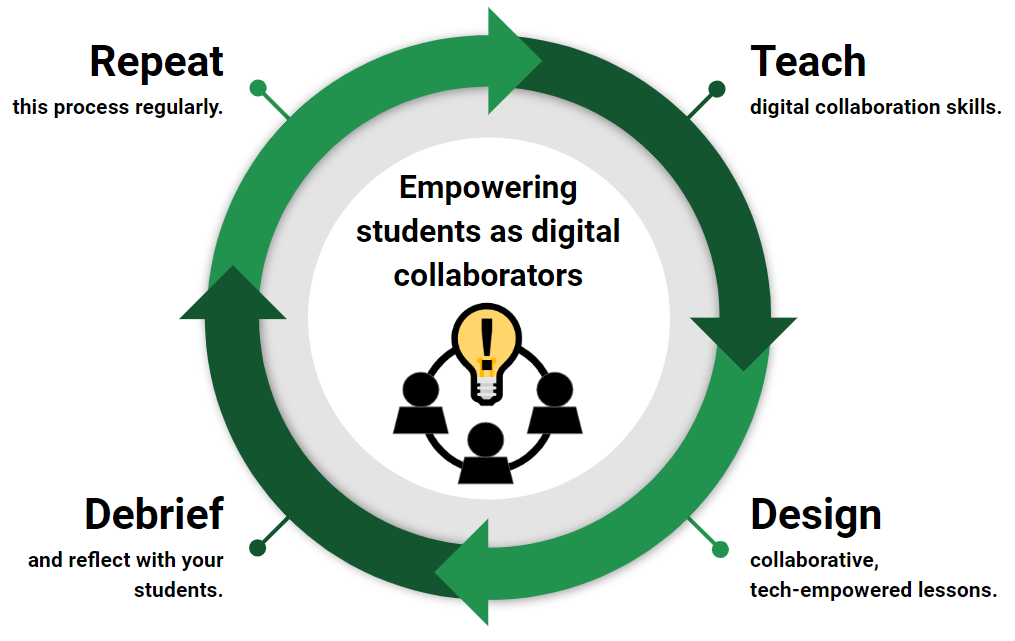To be college and career ready in a tech-empowered world, our students need to be effective digital collaborators. However, we know that students will not master collaboration skills in simple, one-and-done lessons. They need ongoing opportunities to learn and practice, and they will need to be able to practice in a safe environment where they can learn from their mistakes and feel encouraged to try again. Above all, they will need your guidance and support on this learning journey. Use this four-step process to help design repeated learning opportunities that will empower your students with the critical life skill of collaboration.

4 Steps in Empowering Students as Digital Collaborators
- Teach digital collaboration skills. Although we may assume that the digital natives in our classrooms intuitively know how to use all technology well, this is not true. Just because they have grown up with tech and are good at using their phones does not mean that they have mastered all forms of technology, and it doesn’t mean that they are expert collaborators in these spaces. In fact, many of them have been underexposed to the technology that they will use in college and career settings, and many have not seen effective collaboration in practice. Therefore, we must intentionally teach them these skills.
- Design collaborative, tech-empowered lessons. Students need to practice collaborating with technology to become good at it. By creating lessons where students must effectively collaborate in digital spaces, we can provide them with an opportunity to discover their strengths and weaknesses, which ultimately can empower them to grow. A skillfully designed learning experience can set our students up for success and increase the chances that they will internalize these skills and apply them effectively.
- Debrief and reflect with your students. It’s not enough to drop students into a digital world and let them go. We need to help them reflect on their experiences to assess what worked and what did not. Our students will undoubtedly struggle and even fail at times, but we can give them a safe space to fail forward. The reflection process can help empower students with a growth mindset. It’s important to recognize that reflection should not only occur at the end of an activity; it should be integrated throughout the process.
- Repeat this process regularly. We all need repetition to really develop our skills, and students will need repeated opportunities to practice their collaboration skills. Having them do this once or twice will probably not be enough; with each repeated experience, students can learn something new. As they grow, they can continue to refine their skills and apply new learning. With repeated practice, they can develop lasting digital collaboration skills that will empower them throughout their lives.
Extend Your Learning
- Children Must Be Taught to Collaborate, Studies Say (Education Week)
- 8 Fun Ways to Help Your Students Collaborate in the Classroom (WeAreTeachers)
